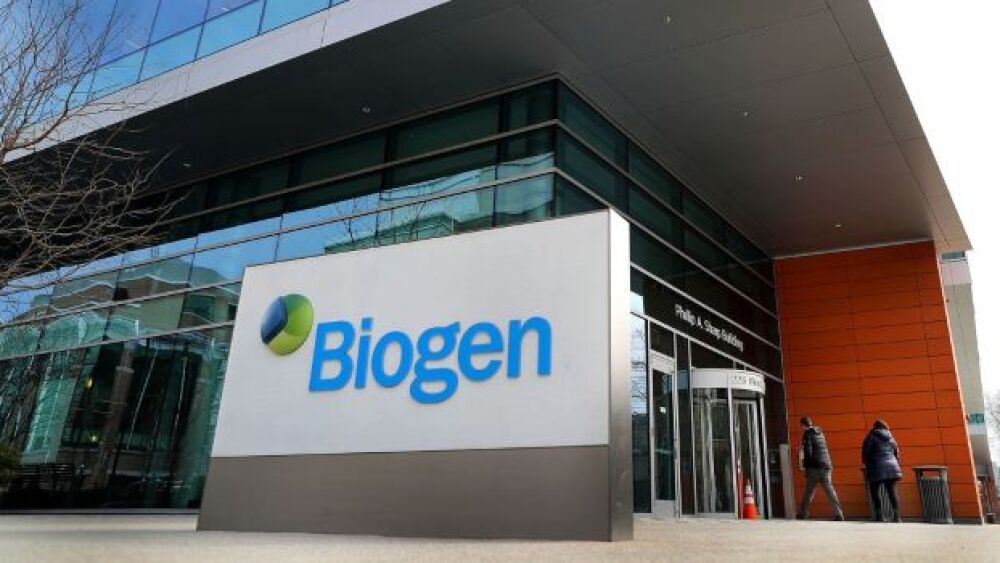A second patient death has been linked to the Phase III clinical trial of Eisai and Biogen’s investigational Alzheimer’s drug lecanemab, according to the journal Science.
Courtesy of John Tlumacki/The Boston Globe via Getty Images
One day ahead of a data presentation at the Clinical Trials on Alzheimer’s Disease (CTAD) Conference, Science reported a second patient death has been linked to Eisai and Biogen’s lecanemab.
The death occurred in a clinical trial for early Alzheimer’s disease and was described in an unpublished case report obtained by Science.
The two companies originally announced positive data for the drug in late September.
In the Phase III Clarity AD trial, lecanemab demonstrated a “highly statistically significant” slowing in disease progression and decreased clinical decline by 27% compared to placebo after 18 months based on the Clinical Dementia Rating-Sum of Boxes (CDR-SB) assessment.
A “One-Two Punch”
Due to privacy protections, a company spokesperson said Eisai “cannot provide any information about specific patients or comment on information that was provided by other sources.”
“It can be difficult to determine what contributed to the death in any given patient, in particular when they are elderly, have multiple medical problems and may have recently received a concomitant treatment or intervention for an acute condition,” the spokesperson added.
The independent Data Safety Monitoring Board completed a review of all ARIA-related safety data from the Phase III trial. This “indicates that lecanemab therapy is not associated with an increased risk of death overall or from any specific cause,” the spokesperson said.
When approached for comment, Biogen deferred to Eisai.
An earlier death possibly associated with lecanemab was reported in late October. The death occurred in June and, as in this case, was due to bleeding in the brain.
Rudolph Castellani, M.D., a neuropathologist at Northwestern University Medical Center in Chicago who co-authored the case report, performed an autopsy on the patient per her husband’s request. He described the case as “very dramatic.”
“It was a one-two punch,” Castellani told Science. “There’s zero doubt in my mind that this is a treatment-caused illness and death. If the patient hadn’t been on lecanemab, she would be alive today.”
The one-two punch is a reference to first, lecanemab, and second, a blood thinner used to treat a stroke the patient had suffered earlier.
Castellani and his co-authors noted that tissue plasminogen activator (tPA), a common blood-clot treatment given to the patient in the emergency room, and possibly other less potent blood thinners, may pose safety considerations for Alzheimer’s patients when combined with treatments like lecanemab.
The patient, a 65-year-old woman, reportedly died from a brain hemorrhage. She suffered a stroke and amyloid-related imaging abnormalities (ARIA), which included both swelling and brain bleeds.
According to Science, the autopsy results indicate the woman had a pre-existing condition that contributed to her death - widespread cerebral amyloid angiopathy (CAA). CAA occurs when amyloid deposits replace the smooth muscle of blood vessel walls.
Several experts who reviewed the autopsy report, including Castellani, believe CAA made the woman’s blood vessels susceptible to weakening when lecanemab cleared amyloid from the brain. The tPA then likely ruptured the weakened blood vessels, causing serious ARIA and a fatal brain bleed, the experts noted.
A Familiar Tune
Biogen’s Aduhelm (aducanumab), which was approved by the FDA in June 2021, is also an antibody targeting beta-amyloid. ARIA and brain bleeds have also been reported in patients taking Aduhelm.
The FDA issued a warning on the drug’s label directing doctors to monitor for ARIA-E, which ncludes cerebral edema. It is linked to headache, confusion, nausea and gait disturbances.
In an August 2021 analysis of Aduhelm and ARIA by Clinical Trials Arena, the organization noted that ARIA is a “known class side effect of antibodies like Aduhelm that target amyloid plaque in the brain.
Data from Clarity AD will be presented Tuesday at CTAD. The study enrolled approximately 1,800 people with indications of early Alzheimer’s disease.
Biogen and Eisai have submitted a Biologics License Application for lecanemab to the FDA under an accelerated approval pathway with a target action date of early 2023.





